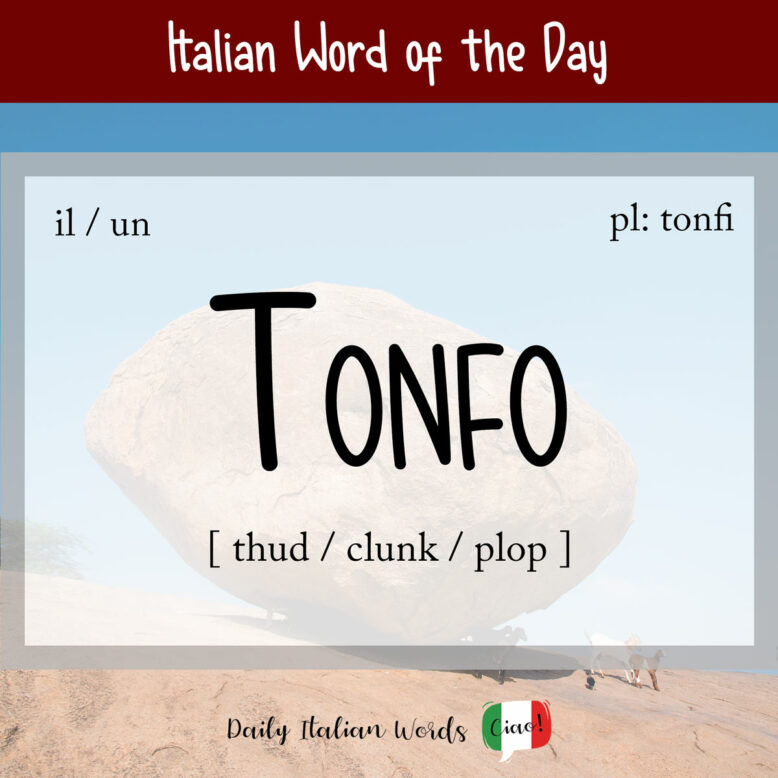When something large and heavy falls on the ground or into the water, it’s likely to produce a thudding sound, a phenomenon that in Italian can be described using the noun tonfo.
tonfo

It is derived from the Lombardic *tumpf meaning the sound of a fall, and has an onomatopoeic origin.
Tonfo is a masculine noun, so it takes the following definite and indefinte articles:
- il tonfo = the thud
- i tonfi = the thuds
- un tonfo = a thud
- dei tonfi = (some thuds)
The diminutive forms of tonfo are tonfetto / tonfettino (little thump), or less commonly, tonfino.
Fare un tonfo is how you would say to make a thud.
Il masso fece un tonfo cadendo nell’acqua.
The boulder fell into the water with a thud.

Figuratively speaking, tonfo can mean a big failure, fiasco or flop, especially in the business of theatre or cinema. To note that “fiasco” and “flop” are also used in the Italian language.
La prima del suo nuovo film è stato un tonfo!
The opening night of his new film was a flop!
Heather Broster is a graduate with honours in linguistics from the University of Western Ontario. She is an aspiring polyglot, proficient in English and Italian, as well as Japanese, Welsh, and French to varying degrees of fluency. Originally from Toronto, Heather has resided in various countries, notably Italy for a period of six years. Her primary focus lies in the fields of language acquisition, education, and bilingual instruction.


